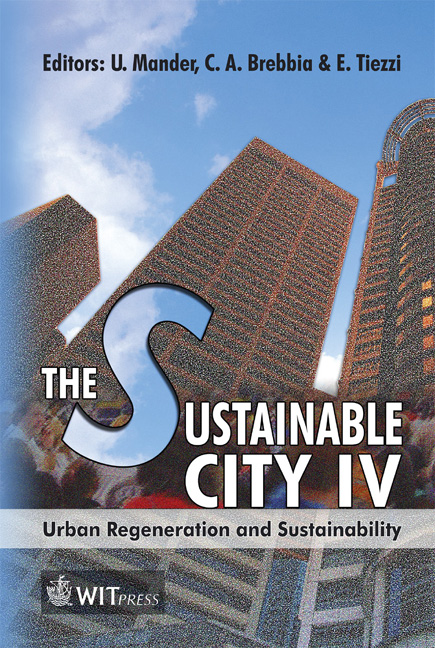History Integrated Urban Transformation
Price
Free (open access)
Transaction
Volume
93
Pages
10
Published
2006
Size
777 kb
Paper DOI
10.2495/SC060061
Copyright
WIT Press
Author(s)
W. van der Toorn Vrijthoff
Abstract
The economic growth and the growth of the European urban area was at a particularly high level in the second half of the twentieth century. The public and economic functions, traditionally located in the inner cities, needed more and more space during that period and were re-located. They moved to bigger buildings on more reachable sites, outside the inner cities. At the same time the mobility of people improved steadily and cities increasingly had to compete for the favour of the consumer. \“City branding” became a common term in those days. With this in mind, the specific identity of the city is of crucial importance. The area of the old inner city is essential in that context, but in the way it was and not the way it has become. The historic embedded identity forms the counterpoint for the dominant influence of a levelling global culture. The faster society is changing, the more attention for the stability of history, the more popular is the preservation of cultural heritage. On the basis of that, in many European cities plans are made or carried out to restore and maintain cultural heritage in combination with renewal, all integrated in transformation plans for parts of the inner city. The decision process about inner city transformations is based on the economic interests of private as well as local public participants. The costs of restoration of cultural heritage are covered by public and private funds. The historic inner city has gained a unique status and \“cultural heritage became business”. This research goes explores how and why cultural heritage has gained importance for any city in Europe and considers how that importance can be integrated in profit based urban transformation projects, projects in which the private sector becomes more and more important. Keywords: urban transformation, cultural heritage, historic inner city, authenticity, conservation, preservation.
Keywords
urban transformation, cultural heritage, historic inner city, authenticity, conservation, preservation.





